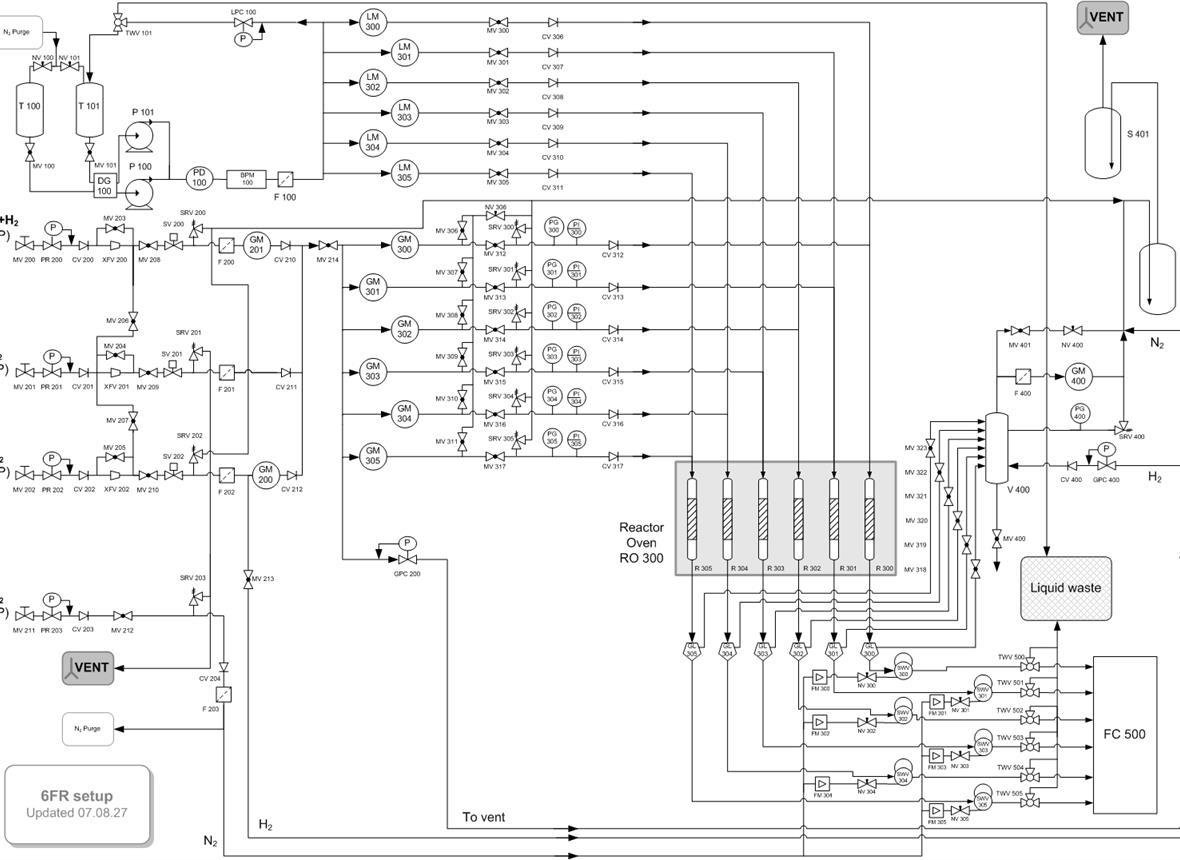Abstract
In this work, the effect of HZSM-5 zeolite acidity on hydroconversion of methylcyclohexane and toluene has been studied. These are test reactions for the second step and the single step of aromatic valorization process, respectively, with the aim of obtaining C2+n-alkanes and isoalkanes. Monofunctional HZSM-5 zeolite catalysts (Si:Al ratio between 15 and 140) have been studied in methylcyclohexane ring opening while bifunctional catalysts (hybrid Pt/Al2O3-HZSM-5, same zeolites) have been used in the hydrocracking of toluene. Runs have been carried out in a fixed bed reactor under 250−450 °C and 20−80 bar. A positive effect of HZSM-5 zeolite acidity on methylcyclohexane conversion and C2+n-alkane selectivity is evident at certain conditions, whereas the maximum selectivity to isoalkanes requires an intermediate value of acidity. On the basis of the relationship between conversion and the Si:Al ratio of the HZSM-5 zeolite, the hydrogenolytic cracking of methylcyclohexane is proposed as a test reaction to determine the Si:Al ratio. Acidity has a highly favorable effect in the hydrocracking of toluene given that it avoids the thermodynamic restrictions for toluene hydrogenation and enhancing all the cracking steps during methylcyclohexane (MCH) transformation, which increases selectivity to C2+n-alkanes and isoalkanes.
Keywords
HCE
HPC
FCC
